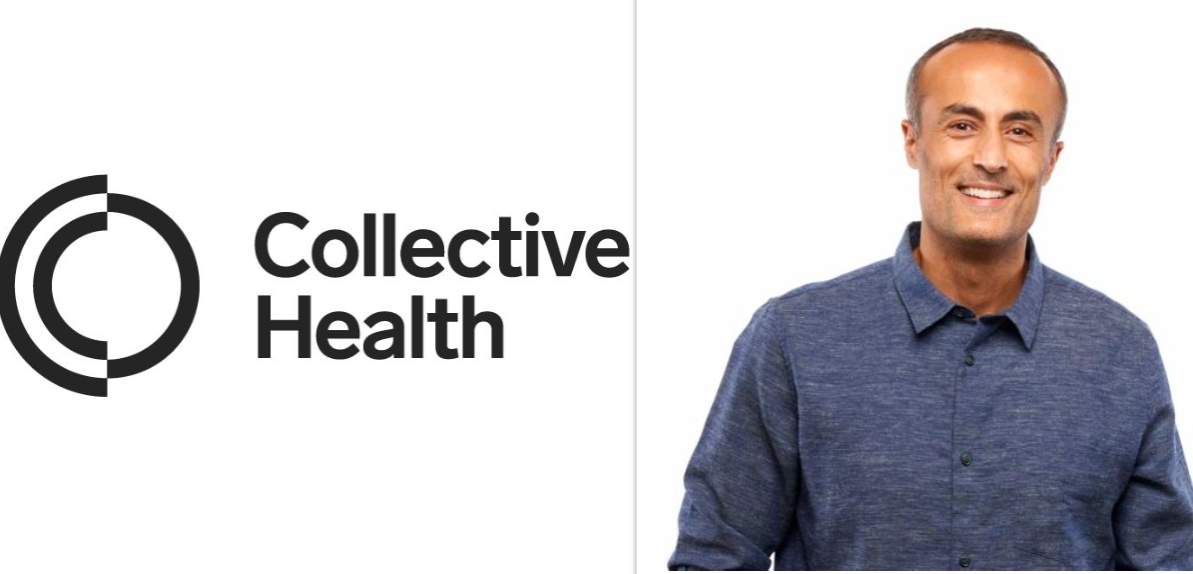CEO Ali Diab co-founded Collective Health as a solution to typically fragmented health insurance coverage for self-insured companies. Series F funding has raised $280 million for Collective Health. This puts the health insurance technology startup at a total valuation of about $1.5 billion, Bloomberg reports.
Led by Blue Cross Blue Shield operator Health Care Service Corporation, both new and existing investors contributed. These include New Enterprise Associates, Maverick Ventures, and PFM Health Sciences.
Now, Diab’s San Francisco-based firm employs over 500 members. In addition, it serves more than 55 companies including Pinterest, CrossFit, and Red Bull.
Ali Diab simplifies Company Insurance with technology
Diab and his co-founder Rajaie Batniji created the Collective Health ecosystem to benefit self-insured companies, employees, and their families. The firm integrates medical, pharmacy, dental, and vision plans as an alternative to separate investments accessed through different platforms.
“Investing in different vendors for every piece of your healthcare strategy is chaotic for your team, confusing for your employees, and bad for your bottom line,” reads the Collective Health website.
Instead, Collective Health’s team of care coordinators and specialists bring all this together. They advocate for members, manage eligibility, explain benefits, and process claims and payments all in one place. For employers, built-in system analytics offer examination of health plan performance and employee engagement. The data science-inspired firm also assists human resource and financial departments in observing and improving their unique plan offerings.
“Not only does it take a lot of the day-to-day work off your plate,” says Alice Vichaita, Head of Global Benefits at Pinterest. “It also gives you the confidence to make the strategic changes that you know will benefit your company and your people.”
Diab joins other innovators in using cutting edge technology to simplify or amplify healthcare.
From Oxford to multiple successful Startups
Diab was born in Palo Alto, California, to Syrian refugees. His mother was one of the first female surgeons in Syria. His father was a political activist. Diab earned a bachelor’s from Stanford University and a master’s from the University of Oxford. He then went to work for Goldman Sachs in 1997.
Diab co-founded and served as COO for BuildPoint in 1999. This startup provided e-commerce services to the commercial construction industry. He went on to work in product management for Microsoft, Yahoo!, and Google’s acquired global ad network AdMob. In 2010 he co-founded and became CEO of Qwilt Software, an Edge Cloud application developer.
Firsthand experience with health issues motivated Diab to improve the quality and cost of healthcare. During this time, he worked for technology companies. So, Diab took his skills in data science and software into the realm of health insurance.
“Benefit leaders, finance leaders, and executives have not had the ability to make true data-driven decisions in terms of what kind of health care they procure for their populations,” said Diab in a Bloomberg interview.
Ali Diab uses Funding to expand
The firm intends to use the funding to scale the platform and reach larger employers. In addition, the funding will support Collective Health’s recently announced partnership with HCSC. In January 2022, HCSC will begin offering the platform’s services to their self-insured Blue Cross Blue Shield customers in Illinois and Texas. The partnership aims to expand this offer to all of HCSC’s markets in the future.
“By combining the technology and user experience capabilities of Collective Health, with the scale and service strength of HCSC, together we can bring many more Americans the exceptional healthcare experience they deserve,” says Diab.
“We look forward to working with Collective Health and its innovative digital technology platform to further complement our portfolio of solutions that meet customers’ evolving health care needs,” said HCSC president and CEO Maurice Smith.
Learn more at collectivehealth.com.



